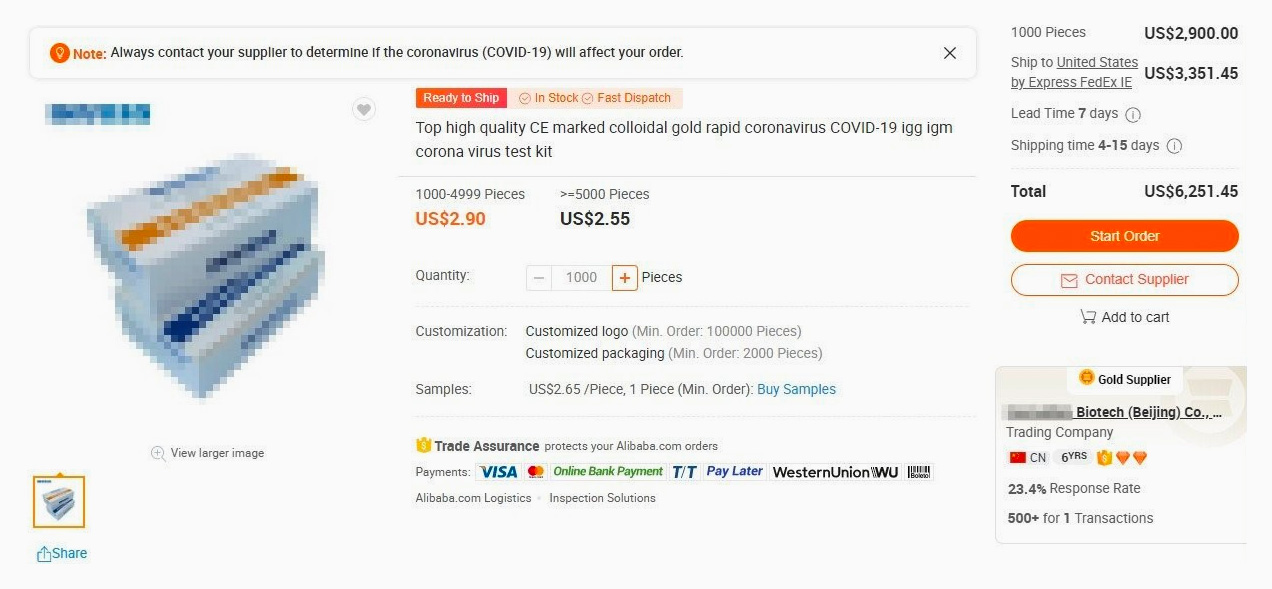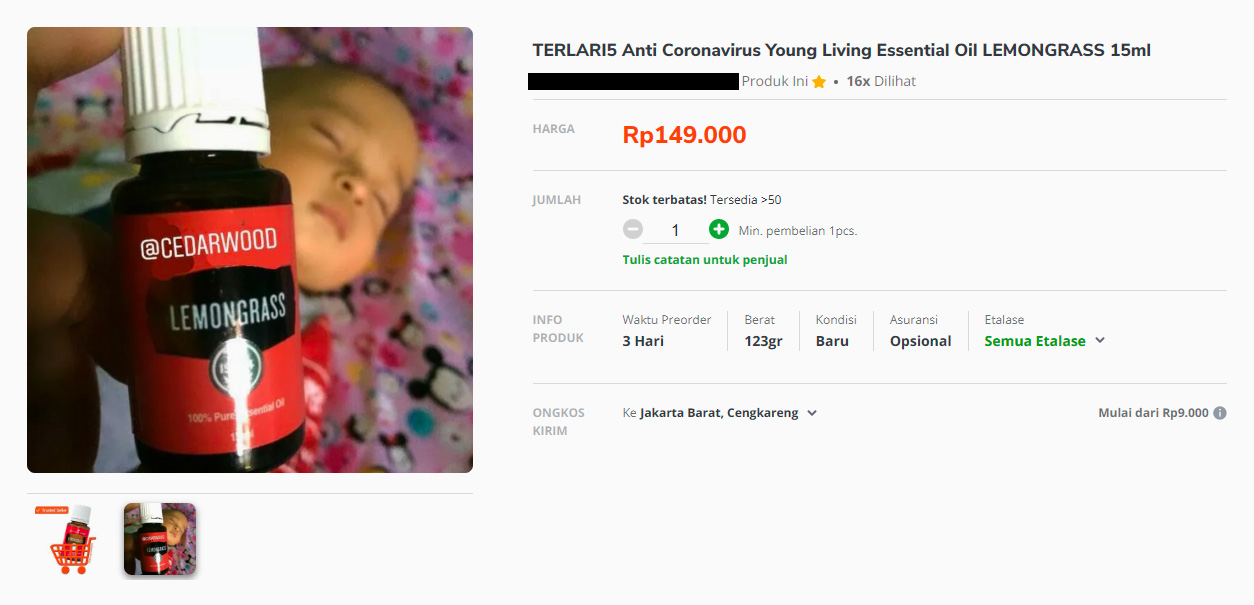


|
||
|
||
In this second article about the online risks of coronavirus, we take a look at online marketplaces.
In the midst of the coronavirus crisis and the partial or total quarantines happening around the world, more people are turning to eCommerce for their purchases. This, combined with the increased demand for healthcare and healthcare-related products, is causing surges of activity on online marketplaces.
Perhaps least surprising is the growth in the number of listings for cleaning and hygiene products (e.g., hand sanitizer), as well as facemasks, to the point that Amazon.com® has reportedly banned new listings of certain classes of product to cope with demand. Many of the identified listings explicitly reference “coronavirus” or “COVID-19” in product titles or descriptions to attract web traffic.
Marketplace sales always carry inherent risks: items may not be as described, may be low quality or ineffectual, or in cases where the offers of sale purport to be for branded products, counterfeit. Therefore, it’s important for consumers to carefully consider the sources they use, bearing in mind factors like seller identity and location, item price, product images, buyer reviews, and so on—although in times of crisis, such things can go out of the window, and counterfeiters capitalize on this. Similarly, brand owners must implement programs to track activity on eCommerce marketplaces to identify branded listings that may offer counterfeits, use established brand names to drive traffic to third-party products, or sell legitimate items sourced through unauthorized routes in the supply chain.
Of particular concern during the current climate are listings offering coronavirus tests or cures. While tests for the virus do exist, there is no guarantee that tests sold on marketplaces are either legitimate or effective and, given the medical nature of such products, counterfeits could have significant negative health implications. Listings for cures are perhaps more concerning still, particularly in view of the fact that (at the time of writing) no cure currently exists, and medical treatments simply aim to relieve the symptoms while giving the body an opportunity to fight the illness1. In one case reported on March 21, a man was charged with manufacturing fake treatment kits containing harmful chemicals2. Fake cures also raise the dangerous possibility of making consumers believe they’re in recovery, making them abandon the efforts to isolate to prevent the spread of the disease.


As with coronavirus-related phishing attacks (discussed in detail later in this blog series), some listings may also refer to trusted organizations such as the Centers for Disease Control and Prevention or the World Health Organization in an attempt to claim endorsement or provide the appearance of legitimacy. This is not only an IP infringement, but more importantly, could be a danger to consumers.
Technology is available to monitor known marketplaces using the sites’ own built-in search functions to identify listings containing brand terms or relevant keywords. It then uses scraping and information drawn from APIs to pull information from the listing, such as the seller name, quantity of items, price, etc. Brand owners can make use of marketplace monitoring services to identify listings in which their brand terms are used. It can also aggregate the information obtained to calculate the total number of items offered by a particular seller, the total value of goods offered, and so on, to identify top sites and sellers.
When infringing listings are identified, make use of the various IP-protection programs operated by marketplaces to have them removed—provided the brand owner has sufficient IP protection, e.g., registered trademarks. Infringing sellers can be suspended from the marketplace altogether or, following a successful takedown, brands can request a seller’s contact details for further investigation.
Sponsored byRadix

Sponsored byCSC

Sponsored byVerisign

Sponsored byIPv4.Global

Sponsored byDNIB.com

Sponsored byWhoisXML API

Sponsored byVerisign
